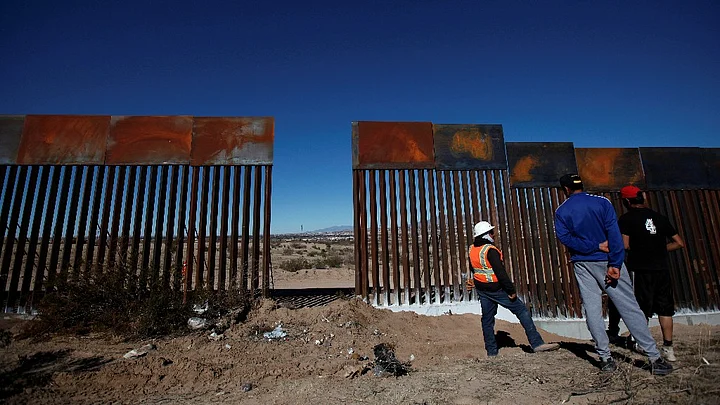The US House of Representatives on Thursday approved a $68 billion increase in military spending next year, with legislation that also provides money to start construction of President Donald Trump's Mexican border wall.
The bill increased spending on the US capability to defend itself from foreign missile attacks amid growing concerns about North Korea's increasing capacity to hit the United States with a nuclear-tipped missile, after it successfully tested an intercontinental ballistic missile in July.
The money required for the wall is now dwarfed by the $658.1 billion the bill would provide for the Defense Department, an increase of $68.1 billion above the fiscal year 2017 enacted level and $18.4 billion above Trump’s budget request.
The House voted 235-192 for the fiscal 2018 spending bill that would provide $1.6 billion for initial construction of a wall on the US-Mexico border, which was a centerpiece of Trump's 2016 presidential campaign.
Democrats repeatedly have referred to any money for the wall as a "poison pill" and are likely to try to kill it in the Senate.
Congress is up against a 1 October deadline – the start of a new fiscal year – for either passing spending bills or temporarily extending funding at current-year levels to give negotiators more time to come to agreements.
Funding for the wall was tucked into a wide-ranging national security appropriations bill at the last minute by Republican leadership, knowing that many House members who oppose the wall would not sink defense spending with a “no” vote.
Trump has argued that a "big beautiful wall" was needed along the entire southwestern US border and that Mexico would ultimately pay for its construction.
Mexico has flatly refused to pay and in recent weeks Trump indicated that there could be portions of the border that are not conducive to a wall.
Democrats and many Republicans in Congress have questioned the feasibility and effectiveness of a border wall, with immigration advocacy groups arguing that it would not stem the flow of illegal border crossings and would hurt US-Mexico relations.
Opposition to Wall
In interviews in recent weeks with more than a half-dozen Republican senators from states that voted for Trump for president last November, only Ted Cruz of Texas embraced building the wall.
Similarly, House Republicans representing districts along the US-Mexico border have expressed opposition to the barrier, which could end up costing well over $21 billion.
Representative Nita Lowey, the senior Democrat on the House Appropriations Committee, called the wall a "waste ... that experts confirm is unneeded and ineffective and cuts against our values as Americans."
Critics say that existing fencing is more than enough and that the portions of the border without it are too remote for crossings and that tribal law, environmental requirements, and personal property rights have blocked fencing for most of the rest.
“Nobody would know it from the President’s hysterical rhetoric, but there are already 700 miles of fence down there on the border — vehicular fencing, pedestrian fencing,” said Congressman David Price.
I know about it because most of that fencing was built when I was chairman of the homeland security appropriations subcommittee.
(With inputs from Reuters and AP.)
(At The Quint, we question everything. Play an active role in shaping our journalism by becoming a member today.)
